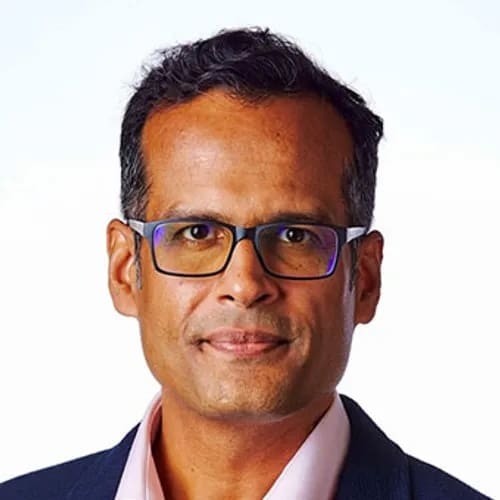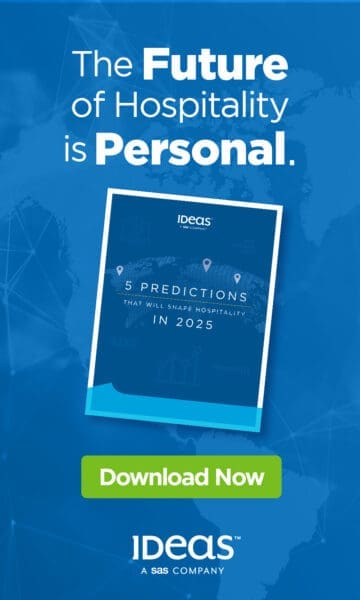
I’ve spoken with renowned hotel industry leaders in the past several months, engaging them in discussions but also asking them to answer three key questions on future-looking queries about the ever-changing field of revenue management. This week I spoke with Neetu Mistry in an effort to better understand and prepare for the lasting impact COVID-19 will have on the hotel industry, particularly in regard to revenue management and its expanding role in the commercial area.
Neetu works as commercial director and is responsible for revenue, sales and marketing activity across Cycas Hospitality’s UK and mainland European portfolio.
Prior to joining Cycas in 2018, Neetu spent five years with RBH Hotels where she gained first-hand experience as a cluster and group revenue manager and later as a director of revenue, increasing commercial visibility and delivering market-leading returns across a wide range of properties.
Question 1: When we look at the discipline of revenue management and the role of revenue managers before COVID-19, why were they struggling in securing a leading spot in the commercial area?
Neetu Mistry (NM): This is interesting, as I personally believe from experience that, pre-COVID-19, the revenue function had started to get a strong hold at the table with regards to presence, voice and driving the strategy for hotels.
The function has evolved so much in the past 10 years, with technology, data as well as the calibre of individuals in the discipline, it was difficult not to listen to what revenue managers had to say. One of the aspects that had vastly improved for the individuals in these roles was the development in engagement, communication and the “selling” of strategies to other functions (not only commercial).
I think this later point, if you look further back than just pre-COVID-19, was the overriding factor as to why there was a period where there was a gap in the best revenue management decisions not being executed because they were not effectively communicated or understood.
There was a large amount of training and recalibration of skills that needed to be undertaken to get revenue managers to present and share data differently, as well as learning from their commercial counterparts how to win the minds of those who were used to running and selling hotels in the same way as they did 10, 20 or 30 years ago.
This recalibration of skills as well as seeing the organizational structure and positions of revenue mangers change over time has also supported a presence in commercial decision-making. The emergence of revenue leaders who were able to effectively communicate their vision and strategies allowed for their voice to be heard. In addition to this, as the distribution landscape, strategies and systems became more complex for other disciplines to digest, the revenue management role became even more key in impacting profitability.
I believe the days of viewing revenue managers as the lesser commercial counterparts has largely gone, especially in the larger scale properties. Companies that have not been able to give this function the spotlight as it needs have probably struggled or operate in very niche markets that do not require dynamic and strategic thinking.
Question 2: Will the pandemic threaten the existence of revenue managers and the revenue management discipline as such, or will it offer a unique opportunity to gain the position they’ve sought for so long?
NM: The coronavirus pandemic has been the biggest eye opener for every function in hospitality as well as every individual. In some ways it has accelerated much waited-for change, such as the ways of working, but on the other hand has also exposed a few flaws in process, training and agility.
This has allowed us to re-evaluate everything we do from the how to the when, and anyone operating in their comfort zone or getting complacent around performance really felt the change.
It is easy in hindsight to rationalize what the industry has been through, and we cannot take away from the fact that the past year has been difficult in so many ways for everyone. However, by changing the way we work and our outlook on measurement, benchmarking and performance, all commercial disciplines should come out of this stronger and better aligned.
This is the perfect opportunity for all commercial disciplines to work collaboratively in driving the best performance. More so than ever, none of these functions can work in isolation, and so my advice would be not only for revenue managers but for all the commercial functions to take the opportunity to understand the changing landscape in which we operate.
It is also the responsibility of commercial leaders to break old processes and practices that have always been there and challenge organizations to focus on current performance, trends and customer behaviour rather than reference too far into the past. The time will come when we can look back and measure performance against historical trends, but for now, let us not just do what we always have done.
Question 3: Will the commercial structure in the hospitality industry change after COVID-19 and if so, how?
NM: We see this happening already and, in many cases, pre-COVID-19. The commercial discipline including sales, revenue and marketing has already taken a big leap in having a presence around the senior and board-level roles, this has been the first step in change for the function.
Secondly, the balance in the roles of sales and revenue have changed with the evolution of the distribution and technology landscape of the industry, and finally, the growth in the importance of marketing, especially digital marketing, has taken over the change in analytics and data that previously just revenue managers were driving.
The three points mentioned allow for skills within commercial teams to be utilized to achieve a united goal. We are seeing the breakdown of silos as each discipline evolves to be profit and customer centric, whilst retaining their nuances which define their expertise. Future roles within the commercial function, regardless of discipline, will carry the same core skills at the heart of each role before defining different areas of expertise.
About the author
As IDeaS’ head of Advisory Services in the EMEA region, Damiano Zennaro is a firm advocate for the power of positive, meaningful and strategic transformations. He’s made it his mission to push the boundaries of revenue science into new verticals while supporting the ongoing success of IDeaS’ existing clients. Always looking ahead, he believes in the importance of proactively embracing change with trusted partners by your side.

















